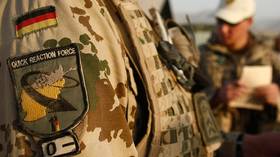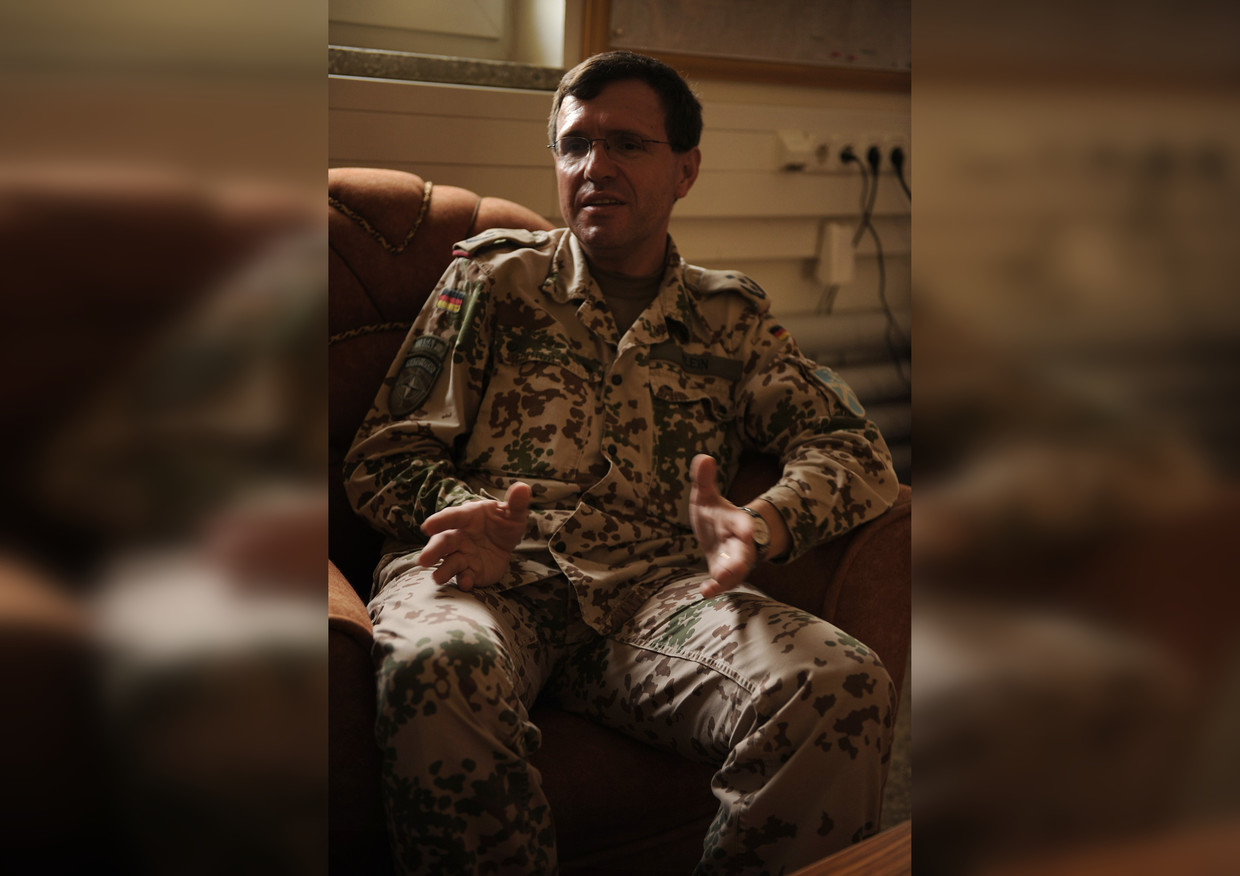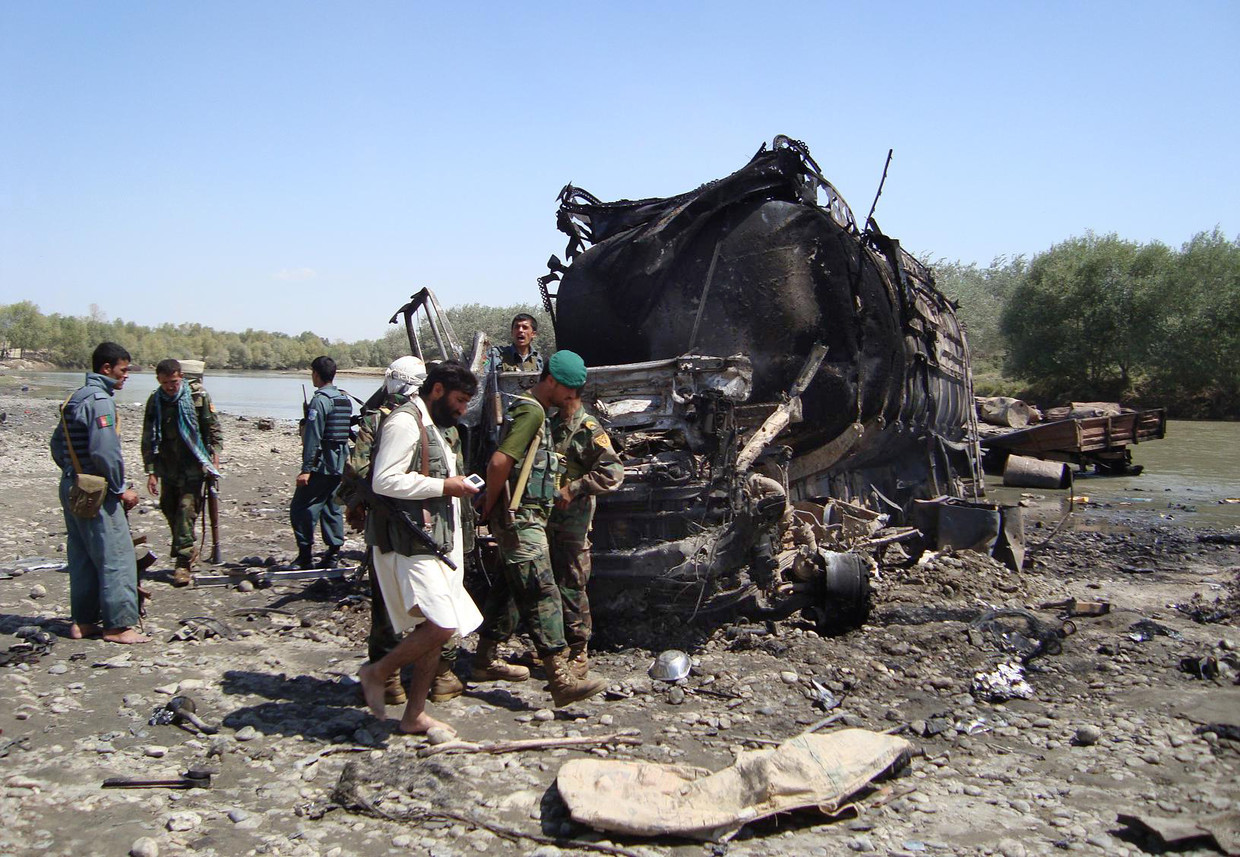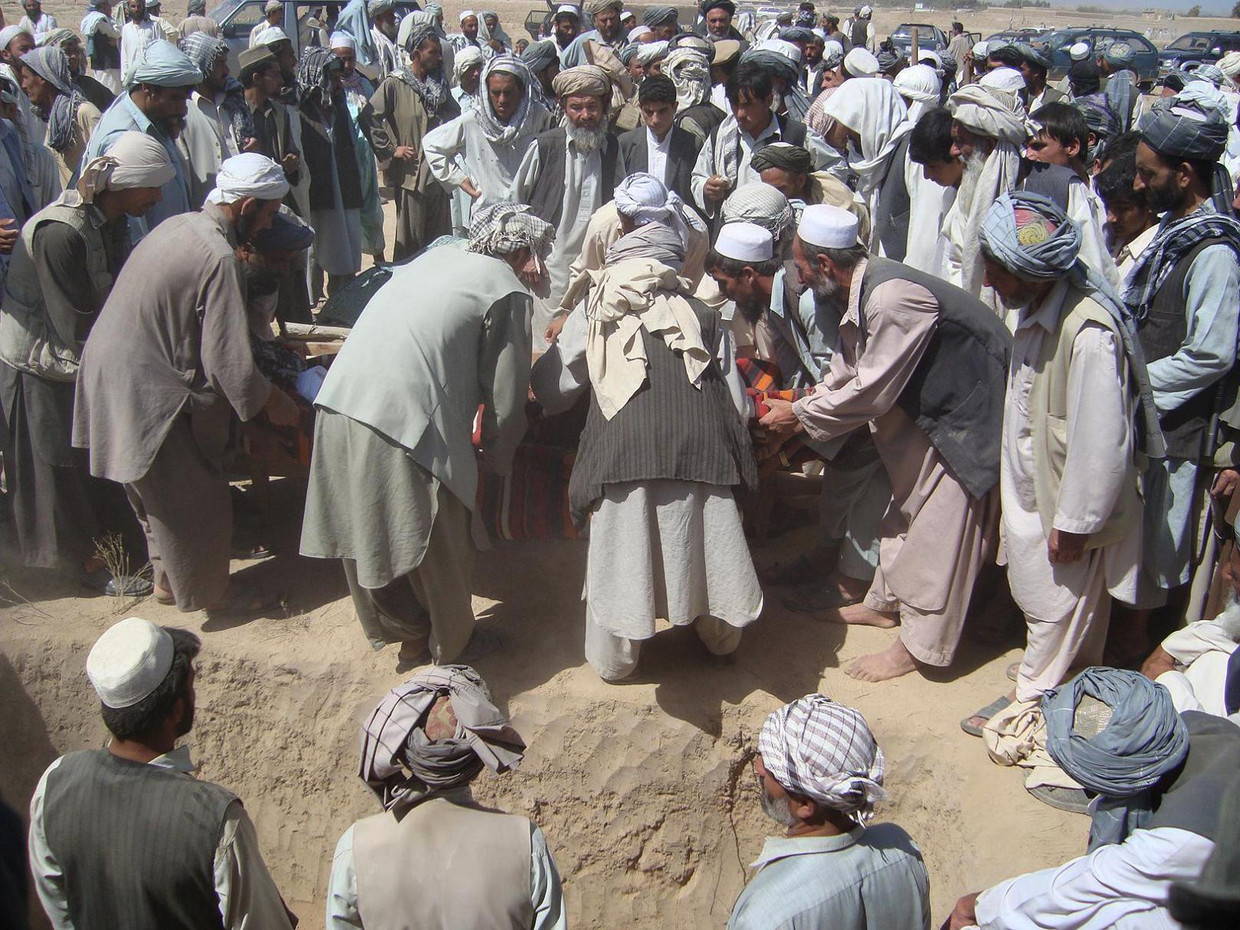How to rise in the Bundeswehr: Story of the general who ordered airstrike on Afghan civilians
Published time: 30 Jul, 2019 06:56

A German general who was behind arguably the nation’s bloodiest operation since WWII recently took charge of the Bundeswehr’s military training department — and reports say he may have medical issues to boot.
Readers hoping to hew out a career with NATO and the European military, meet Brigadier General Georg Klein, the man who was promoted this year to lead the department overseeing the training of young Germans joining the military.

Fruitful career
Klein rose from tank platoon commander to a member of the German High Command, racking up a range of fancy army titles and accolades – all before reaching his 60s. He has served on the German General Staff, was part of the nation's permanent mission to NATO and joined the Alliance-led force in Bosnia and Herzegovina, known as SFOR. Klein has also served in Afghanistan as part of the International Security Assistance Force and led a provincial reconstruction team in the northern province of Kunduz.
Klein’s exploits paid off with his appointment to lead the Bundeswehr rank and file personnel management department in 2012, before eventually being tipped for the training department in March.
ALSO ON RT.COMWashington wants German troops in Syria to help fill gap left by departing Americans'Bloodiest operation' in Germany's post-war history
Few details are known by the public about the specifics of Klein’s career, but one thing is certain: He was responsible for what was dubbed Germany’s “bloodiest operation” since World War II — a deadly airstrike that claimed the lives of more than 100 Afghan civilians.
When Klein was in command of the aforementioned provincial reconstruction team in Kunduz, he received intelligence on two fuel tankers hijacked by Taliban militants, which he suspected could be used to bomb Western troops and possibly a German base. He asked the US forces in the country to strike the tankers’ location.

What came next on the night on September 4, 2009 was an inferno killing between 142 and 170 people, according to differing estimates. It turned out that the tankers had never been intended for use as bombs, but hundreds of locals had gathered around them to siphon free fuel when the US F-15 jets struck with two 500-pound (227kg) guided bombs, turning the scene below into hell on Earth.
The disaster cost former German Defense Minister Franz Josef Jung – who had moved to head the Labor Ministry by that time – his post. The same fate awaited the then-inspector general of the Bundeswehr, Wolfgang Schneiderhan, who resigned amid allegations that he sought to cover up the scandal.
However, Klein himself managed to come out of the disaster unscathed. Proceedings launched against him both by the military and prosecutors in the wake of the tragedy were both dropped, as investigators said he could not have known about the civilians present at the strike location.
Relatives of the victims received only $5,000 from the German government as a 'goodwill gesture'. Berlin refused to discuss any official compensation or recognition of its guilt as the highest German court ruled that the state is simply "not liable" for any operations abroad.

Not fit for service?
Now, new details of that already long-forgotten bloody story have emerged as a former German military doctor claims that the trigger-happy military man might have been unfit to lead that mission in Afghanistan in the first place.
Albert Dittrich, a former Bundeswehr medical specialist who has been criticizing the flaws within the German military administration for years, happened to serve in Afghanistan alongside Klein. Dittrich even medically examined the then-colonel less than a month before the ill-fated strike.
ALSO ON RT.COMHundreds of German soldiers ‘unfit for service’ following missions abroad – report
It was after the examination that Dittrich classified Klein as "unfit for military service due to health reasons," and said he had “no legitimate grounds to be in Afghanistan,” as reported by Business Insider, which broke the story.
The doctor revealed that his predecessor in the hospital of Mazar-i-Sharif in Afghanistan also questioned Klein's ability to perform his duties, although he never revealed details about what had led the doctors to their conclusions.
ALSO ON RT.COMHalf of Germany’s potential army recruits unfit, lack motivation or have no citizenship – reports
Karim Popal, a lawyer from Bremen who represented the victims of the fatal 2009 airstrike in the wake of the disaster, was blunter in his assessment.
"At that time, I received certain hints that [then] Colonel Klein was not in a good mental state on the day of the strike," he told Business Insider.
Dittrich sought to alert the German High Command about Klein's health problems. He wrote letters to the Defense Ministry and the head of the Bundeswehr's personnel management department, in which he said that Klein "had caused the death of over a hundred of Afghans with his fatally wrong decision."
'No doubt'
Yet, it was not Klein but Dittrich himself who landed in hot water over those warnings and other critical remarks about the Bundeswehr. He was eventually accused of violating his duty of conduct and moderation, as well as his duty of maintaining confidentiality.
The Bundeswehr personnel management department – the same agency where Klein got a lucrative job three years after the fatal strike – eventually reduced Dittrich's pension as a form of punishment after the doctor retired from the military in 2016.
Dittrich challenged the decision in court, and although the judges rejected his complaint, they still ruled that his statements about Klein did not constitute a "breach of duty."
ALSO ON RT.COMGerman army targets children with ‘glossy’ ads amid chronic personnel shortage
Despite that, the Bundeswehr remains steadfast in its defense of the man it has proudly presented as the new military training chief with the Joint Support Service Command. A military spokesperson told Business Insider there was “no doubt” that Klein was fit for service when he was deployed to Afghanistan.
The Bundeswehr sees no grounds for questioning Klein's capabilities or, apparently, his right to take up a leadership position in the field of military training — but it might be worth asking what wisdom he could impart on young German soldiers.
After all, his greatest achievement appears to be retaining his prestigious positions within the military and earning promotions, even following a grave mistake that cost more than one hundred lives.

0 Comments:
Post a Comment
Subscribe to Post Comments [Atom]
<< Home